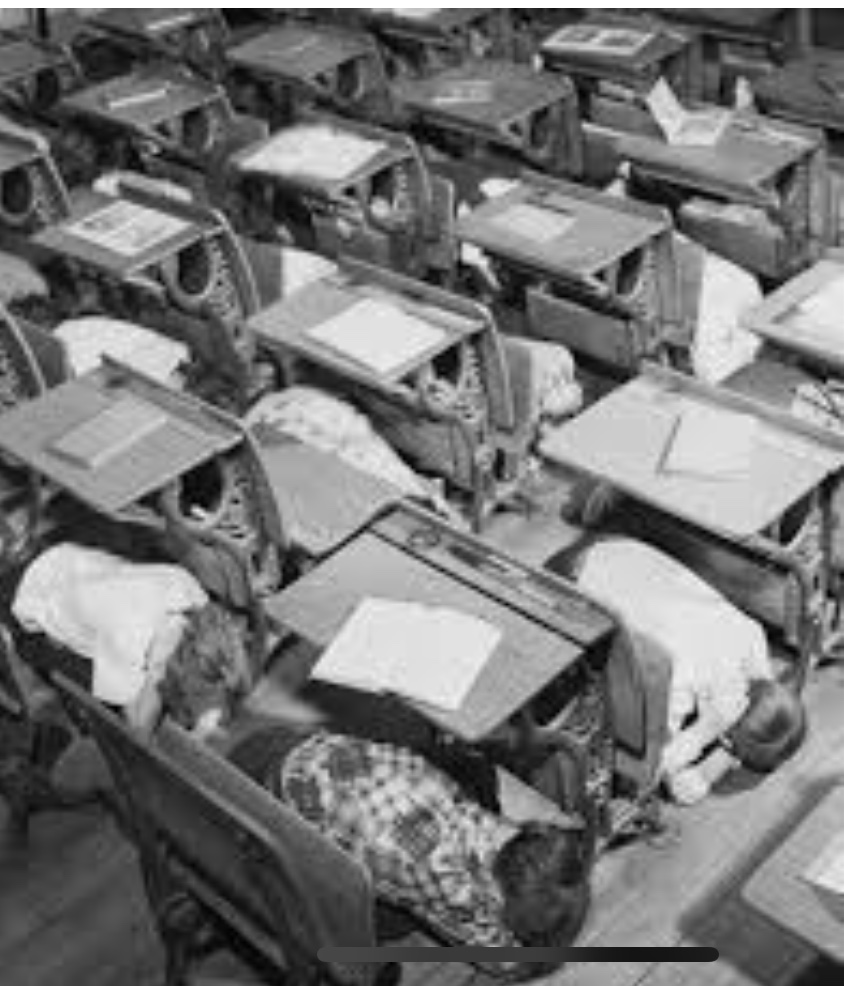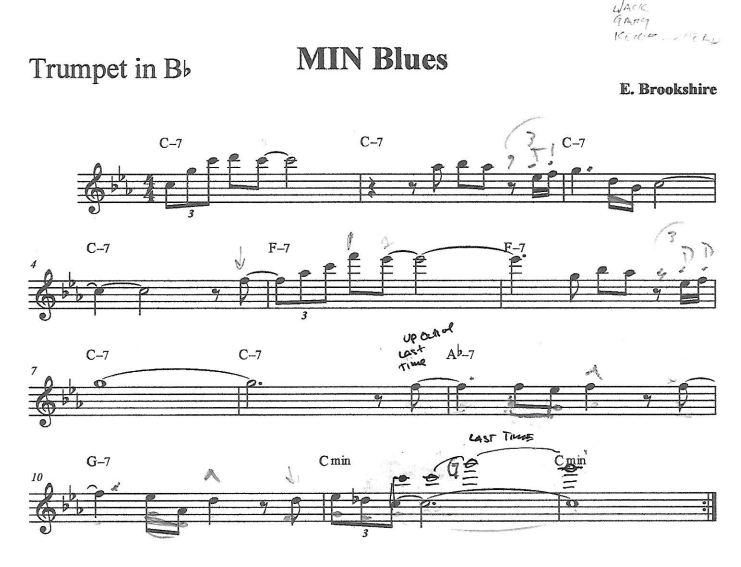Torpedo Cases sells mouthpiece cases. I have a 4 piece pouch. It holds 2 Harrelson 5m mouthpieces with no problems.
Best posts made by Dr GO
-
RE: WTB mouthpiece caseposted in Cases and Storage
-
RE: Laughter is the Best Medicineposted in Medical Concerns
I agree with BOTH moderators.... I did wait a minute or so before I hit the submit button.
-
RE: no prayer requests allowedposted in Lounge
@Dr-Mark said in no prayer requests allowed:
People that know me say I'm competitive and I can handle the heat of a barbed discussion. But, winning a discussion at the cost of pissing off a legion of people is a costly win. Then I'd have the label; Doesn't play well with others"
As a Pediatrician, I live by the saying: Much better to be pissed off than to be pissed on.
-
RE: Easy way to increase air supply for brass playersposted in Embouchure and Air
So George, I do more believe the effects you feel with metoprolol are more related with the cardiovascular effects of dilating arteries, lowering blood pressure (and yes, heart rate which is why this is a good drug in controlling a-fib), which can decrease overall stamina (but not effecting lung dynamics). I do believe rather a weight lifting program focused on chest wall and abdominal respiratory muscles may be in your best interest.
.... AND you are in luck, as I am running a special for a limited time where you can purchase the workout manual "Better Trumpet Playing Through the Bowflex System" in just 14 easy lessons for the special, low low price offer of $9.95. What a value considering the regular purchase price of $59.58 at local Planet Fitness stores! A collection compiled by Gary M. Onady MD, PhD, best selling trumpet fitness author and widely know for being the greatest individual in spewing a LOT of HOT AIR!
-
RE: BlowDry Brass Systemposted in Bb & C Trumpets
@kehaulani said in BlowDry Brass System:
"Good to hear from you. I hope all is well at your new home in Germany!"
Ivan, you relocated to Germany? Where?

-
RE: WTB mouthpiece caseposted in Cases and Storage
@jolter said in WTB mouthpiece case:
The Torpedo 4-pack looks nice but impractical - I wouldn't see which MP is in which compartment which is a non-starter for me.
Look at the 4 pack picture closely. One button is silver the remainder are black. That is how you can locate the mouthpiece in the sequence in which you store them related to the one button color different from the other. Simple concept but it works.
In addition, my Torpedo 4 pack is now 10 years old and looks the same as the day I first received it. In other words it is real leather.
-
RE: Playing risks in Covid-timeposted in Medical Concerns
@Kehaulani said in Playing risks in Covid-time:
@ROWUK said in Playing risks in Covid-time:
Doesn't Fauci "serve at the pleasure of the President"?No, he does what is right...
What's that supposed to mean? Do you mean that he can't be fired by the President?
No. Fauci cannot be fired by the President. He is a division head under the director of the NIH. The President can choose to kick him off the task force though.
-
RE: A little humourposted in Lounge
@BigDub said in A little humour:
@Tobylou8 said in A little humour:
I had a chicken that could count her own eggs! She was a mathemachicken.
That was not eggs actly what I was thinking
Ahh... but the yolks on you then!
-
RE: A way to practice.posted in Embouchure and Air
Muscle memory takes devoted time and effort to continue the repetitive exercises on a daily basis. If the effort is put into a repetitive practice schedule, then in about 4 weeks, a goal will be achieved.
However, using Muscle Memory is best applied to securing repetitive phrases to add to performance skills.
To achieve accomplished overall performance skills, the 10,000 hour rule applies.
-
RE: Which trumpet to buy?posted in Bb & C Trumpets
@vulgano-brother said in Which trumpet to buy?:
Try a bunch of horns (including those not on your list) and let the right one find you.
I tried a bunch of horns and many found me, each one right in their own way... kinda like trumpet polygamy.
-
RE: Playing risks in Covid-timeposted in Medical Concerns
@Kehaulani said in Playing risks in Covid-time:
And for the musicians' sake, rubbing elbows with audience members, even though you may have taken all precautions on stage, then puts you at greater risk off-stage. Point is that, even though you may take precautions on stage, as soon as you socialise with others at the venue, all bets are off.
Sadly, this is so true.
-
RE: How about a "Random Meaningless Image...let's see them string"?posted in Lounge
@SSmith1226 said in How about a "Random Meaningless Image...let's see them string"?:
@Kehaulani
One of my favorite books growing up as we practiced “Duck and Cover” by placing our heads in our laps and under our desks in order to save our lives in case of nuclear attack.
And I remember saying to my teacher "and kiss your ass goodbye."
-
RE: A way to practice.posted in Embouchure and Air
@georgeb said in A way to practice.:
Interesting. I'll give it a try.
GeorgeAlong with a few doses of Prevagen for people our age!
-
RE: Brand-New 1971 Olds Ambassador Trumpet Possible?posted in Bb & C Trumpets
@davidpaul said in Brand-New 1971 Olds Ambassador Trumpet Possible?:
My wife is insisting that the Ambassador trumpet should no longer be allowed in our bed at night. She claims the cold brass is uncomfortable on here back when she accidently touches it. Is she being unreasonable?
I find that blowing my warm air through the horn prior to taking it to bed allows it to warm up to my wife, so she becomes more tolerant. She loves that the bell feels so good as a back massager.
-
RE: Info requested from MD's & pros w/similar issuesposted in Medical Concerns
@Estevao said in Info requested from MD's & pros w/similar issues:
I've been diagnosed with profound (not nerve damage) hearing loss in right ear, severe loss in left. Also, retinoschesis (sp?) In both eyes. Any advice? BTW, I'm 70 & my only goal is to play the hymnbook well enough that people want to sing along. Estevao (Stephan)
It is hard to give advice without knowing the diagnosis causing the deafness. Here are the causes of deafness:
Viral infection of cochlea/auditory nerve:
Inflammation of cochlea/auditory nerve
Syphilis
meningitis
Encephalitis
Acoustic neuroma (vestibular schwannoma)
Other cerebellopontine angle (CPA) tumorsThen you state that this hearing loss is not related to nerve damage. I am guessing this was based on a evoked response EEG study? If in fact, the neurological pathways were determined normal, this leaves only these possibilities:
Sludging due to hyperviscosity
Polycythemia vera
Macroglobulinemia
Leukemia
Accelerated coagulation
Arteriosclerosis
Aneurysm of anterior inferior cerebellar artery
HypothyroidismNot knowing whether imaging studies had been ordered to rule out microvascular disease, whether bone marrow sampling has been performed to look for leukemia causes, or if lipid profile, coagulation or thyroid function tests have been performed makes it very difficult to provide advice at this phase. Obviously, best focused advise would to focused around treating the underlying cause.
-
RE: A little humourposted in Lounge
@Dr-Mark said in A little humour:
HiSSmith1226,
What's the most musical part of the body?
The nose!
You pick it and blow it.Ah you have never heard me after eating Mexican food. I become very musical from a more Southern region.
-
RE: Circular Breathingposted in Embouchure and Air
Tastefully applied by Trombone Shorty from 0:43 to 2:41 (almost 2 minutes of circular breathing). Check out the reaction of the audience. This is what I experience in crowd reaction as well.
-
RE: Update on my Olds Recordingposted in Bb & C Trumpets
Showing some range diversity of the Recording. Here is a cut from the same album, this one written by our bass player and leader, Eddie Brookshire titled "Minor Blues". Popping some F's and G;s in the head. So powerful is the Recording, that it sounds like an entire brass section playing the head, Nope, only two horns, trumpet and tenor. The Recording performs!

-
RE: I'm desperate and at a lost with reactions to metal mouthpieces.posted in Medical Concerns
Not sure how the allergy testing is done before I can concluded that there may have been a false negative to allergy testing for metal. For metal testing, the patch test is the gold standard (could NOT resist that pun for the life of me). So my question to the OP, did the allergist rule out nickle, silver or brass testing by patch testing. If not, we still cannot rule out allergies (due to high level of false negative) testing by other methods.